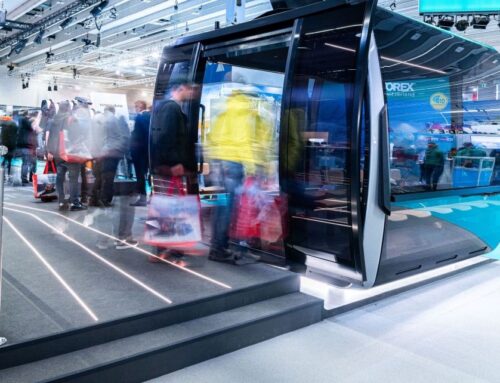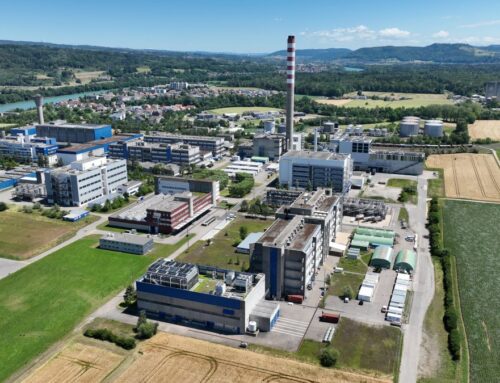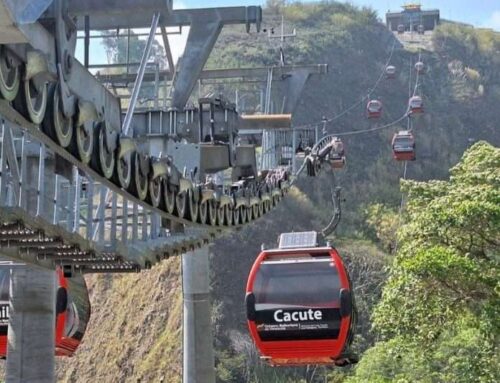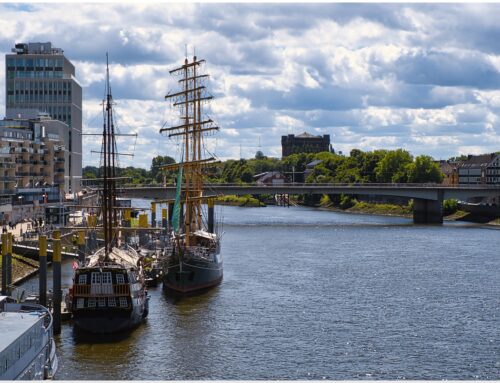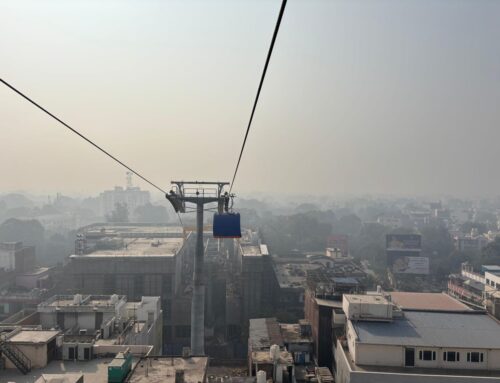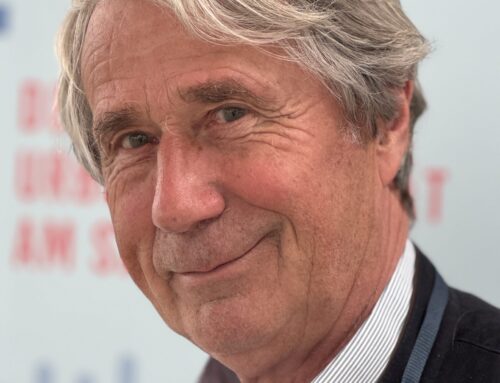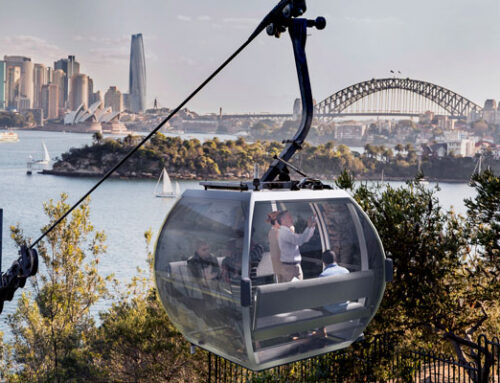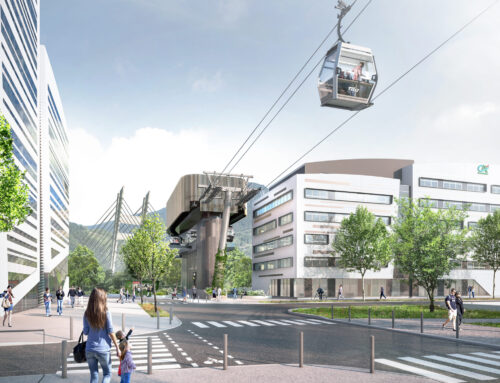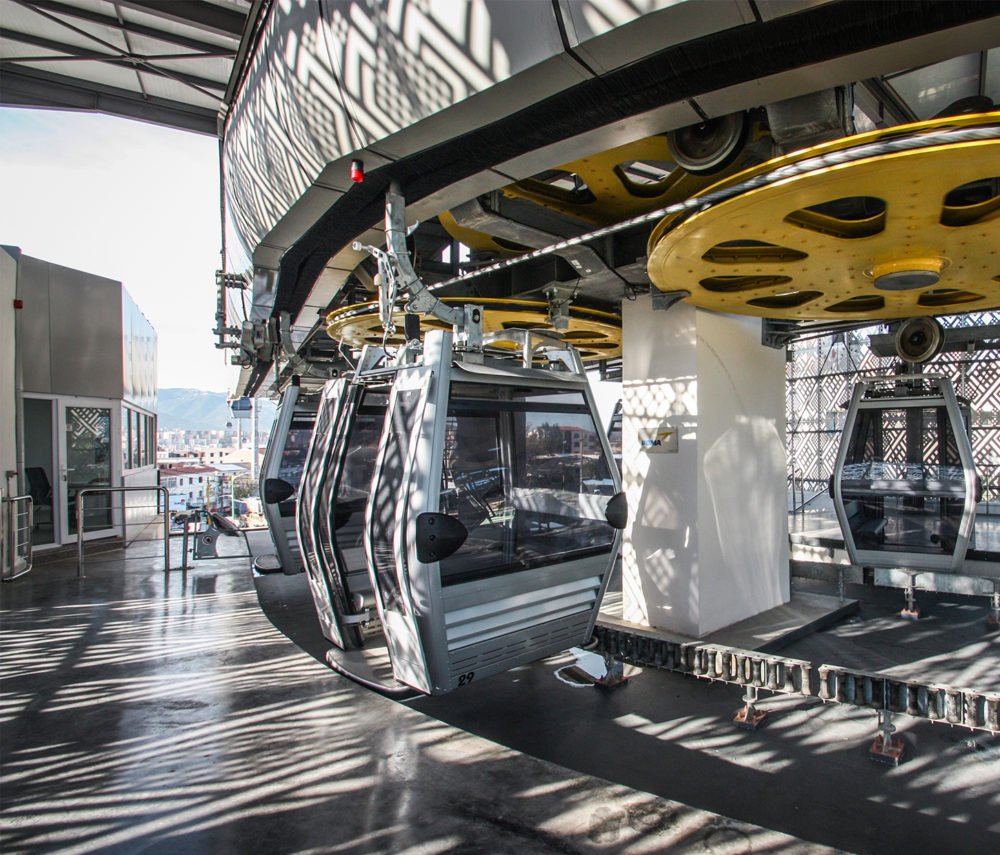
Cities, SI Urban 1/2021
Urban cable car from Poma operates with huge success
With eleven circulating tracks as well as numerous smaller funicular railways and aerial cableways, Algeria is a true cable car country. The reasons why it has such a strong affinity with the cable car include the dense infrastructure, narrow roads and steep topography of the major cities. Cable car connections have spanned slopes here since the 1950s and connect the lower districts of the cities to those in the middle and at the top.
Furthermore, they ensure that road traffic in the cities does not increase further. The rapid and broad acceptance of cable cars in Algeria is due to the high volume of traffic and congestion that have long been characteristic of its cities.
Intermodal cable car
The population is therefore familiar with urban cable cars, but they were still a new thing in Tizi Ouzou. However, people were quickly convinced by the many advantages, such as rapid construction, fast transport and environmentally friendly operation. Moreover, the tickets are very cheap – five times less than a taxi ride. A 2.4-kilometre cable car with 65 gondolas has therefore been crossing the city since 2020. This starts at the
intermodal railway station, and thus allows connections to the railway, buses and taxis. The cable car then runs to the university and the stadium, before ending at the regional government offices. All the stations are designed to allow connections to other modes of transport and can be developed into multifunctional buildings. The transport capacity amounts to 2,000 people per hour and direction and the cable car operates for twelve hours per day.
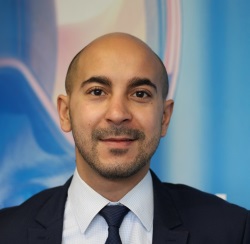
Mohamed Guennaz, Managing Director of ETAC
Mohamed Guennaz, Managing Director of ETAC
“Every month, more than 300,000 people use our cable car in Tizi Ouzou. The people love this mode of transport; during lockdown they asked every day when we would be open again. I can only recommend the cable car: it was constructed quickly and cheaply, it is environmentally friendly and protects the environment. Moreover, the passengers have a beautiful view from all locations, so the tourist potential is great.”
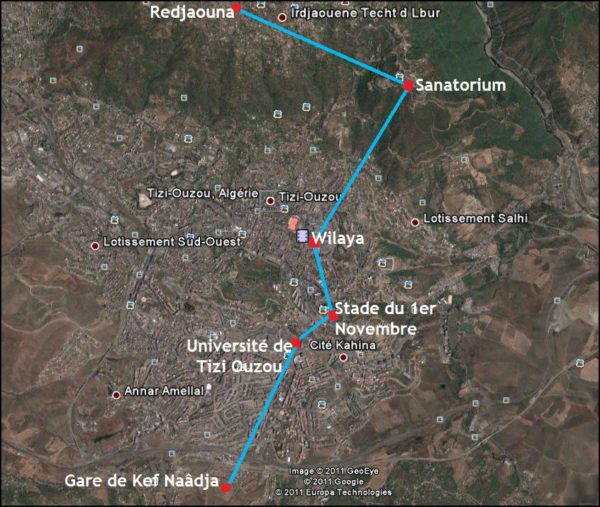
In the final version, the cable car in Tizi Ouzou will serve six stations: at the railway station (Gare de Kef Naâdja), the university (Université de
Tizi Ouzou), the stadium (Stade du 1er Novembre), the regional government offices (Wilaya), the hospital (Sanatorium) and the excursion mountain (Redjaouna).
TIZI OUZOU CABLE CAR
TIZI OUZOU CABLE CAR
|
Transport capacity |
2,000 p/h/d |
|
Length |
2,4 km |
|
Travel speed |
5,5 m/s |
|
Journey time |
15 min |
|
Stations |
4 |
|
Gondolas |
65 |
|
Gondolas Capacity |
10 P |
|
Supports |
19 |
|
Operating hours |
12 h/d |
Cable car operated by consortium
“Rather than spending 45 minutes in the car, guests can reach their destination in 15 minutes,” Mohamed Guennaz, Managing Director of operating company ETAC, is pleased to report. This company has existed since December 2014 and forms a joint venture between French cable car manufacturer POMA and the Algerian state – specifically the Enterprise of Algiers Metro (EMA) and the state-owned TRANSTEV group.
For six years, ETAC has been responsible for the operation, management and maintenance of the existing cable car network in Algeria – and therefore also for the cable car in Tizi Ouzou.
Training with UPilot
Well-trained employees are a critical success factor for the operation and maintenance of the cable car in Tizi Ouzou. Here, as all over Algeria, ETAC relies on the UPilot® training programme from POMA. 15,000 hours of training have already been completed.
“600 employees have already been trained on our globally unique simulator,” Guennaz is pleased to report. Thanks to UPilot®, ETAC is able to rely entirely on local specialists who have received intensive training to work on the cable car. “Our employees are not only well-prepared but also equipped for any situation,” Guennaz emphasises.
The cable car in Tizi Ouzou will soon be extended with two additional sections.
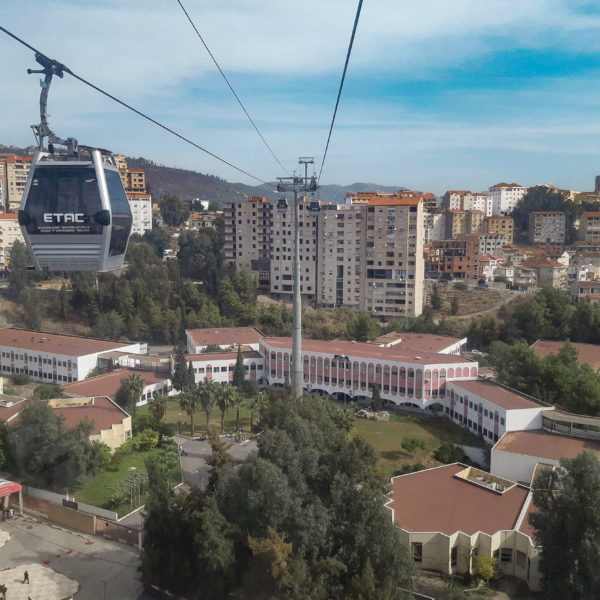
Second section already under construction
And the personnel requirements will continue to increase, as the plan is to extend the cable car in Tizi Ouzou with two further sections. The first extension stage will serve the hospital. “The supports have already been installed here and the gondolas have already been delivered,” Guennaz says. The second extension stage will run to the tourist excursion mountain Redjaouna – planning is in full flow here. In the final version, the Tizi Ouzou cable car will therefore serve six stations and form a new transport axis in the Algerian city, using the third dimension. ts
